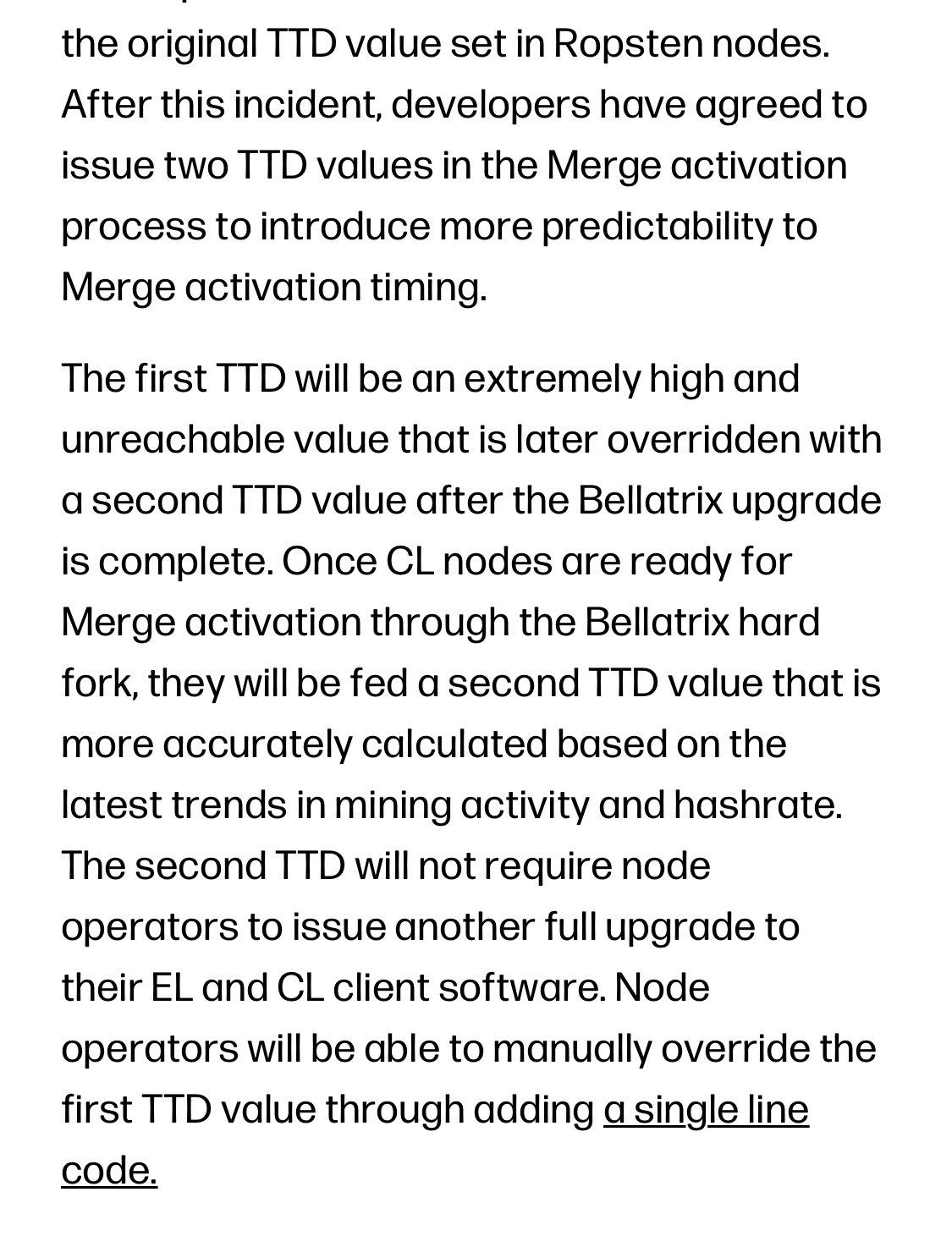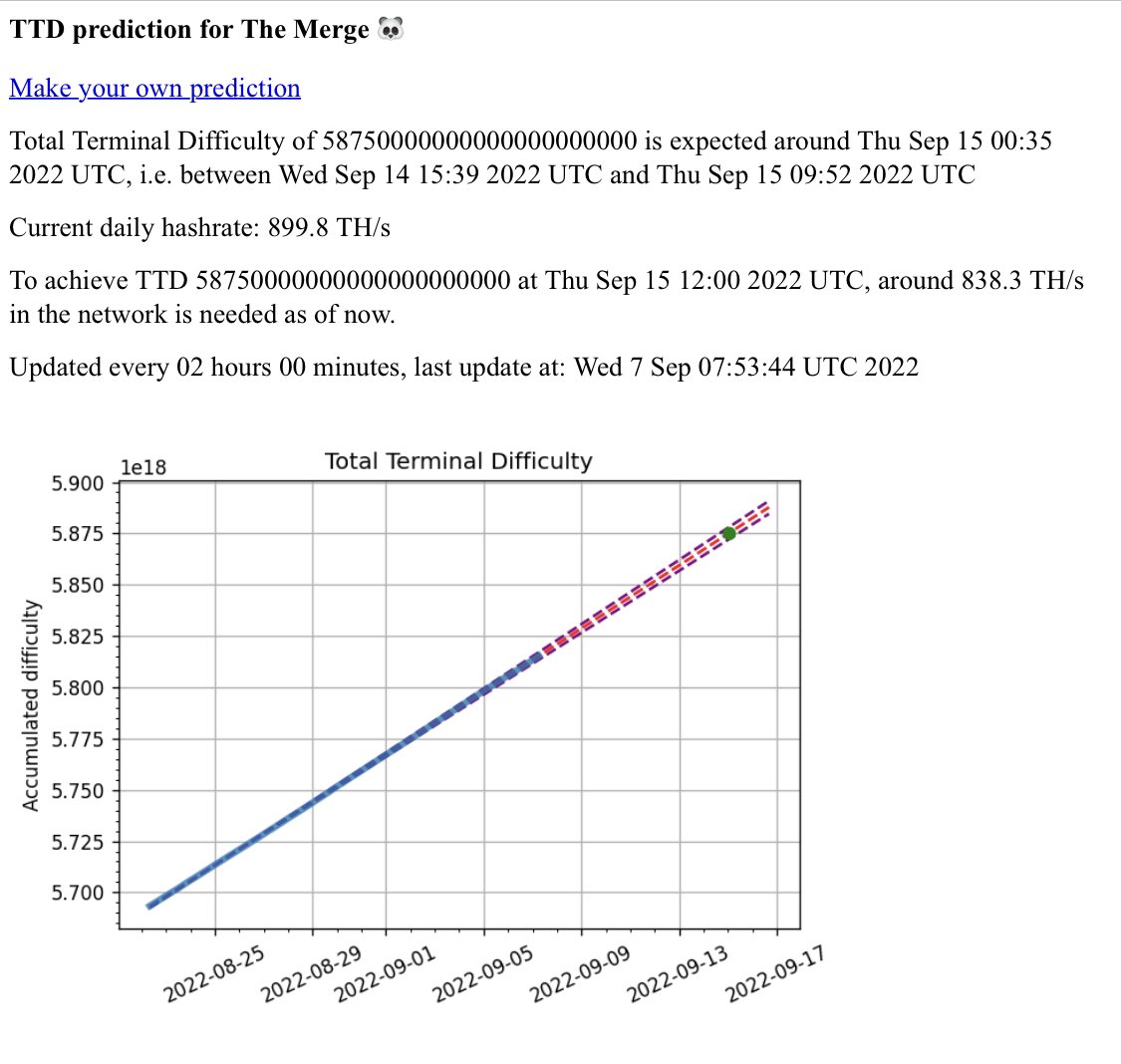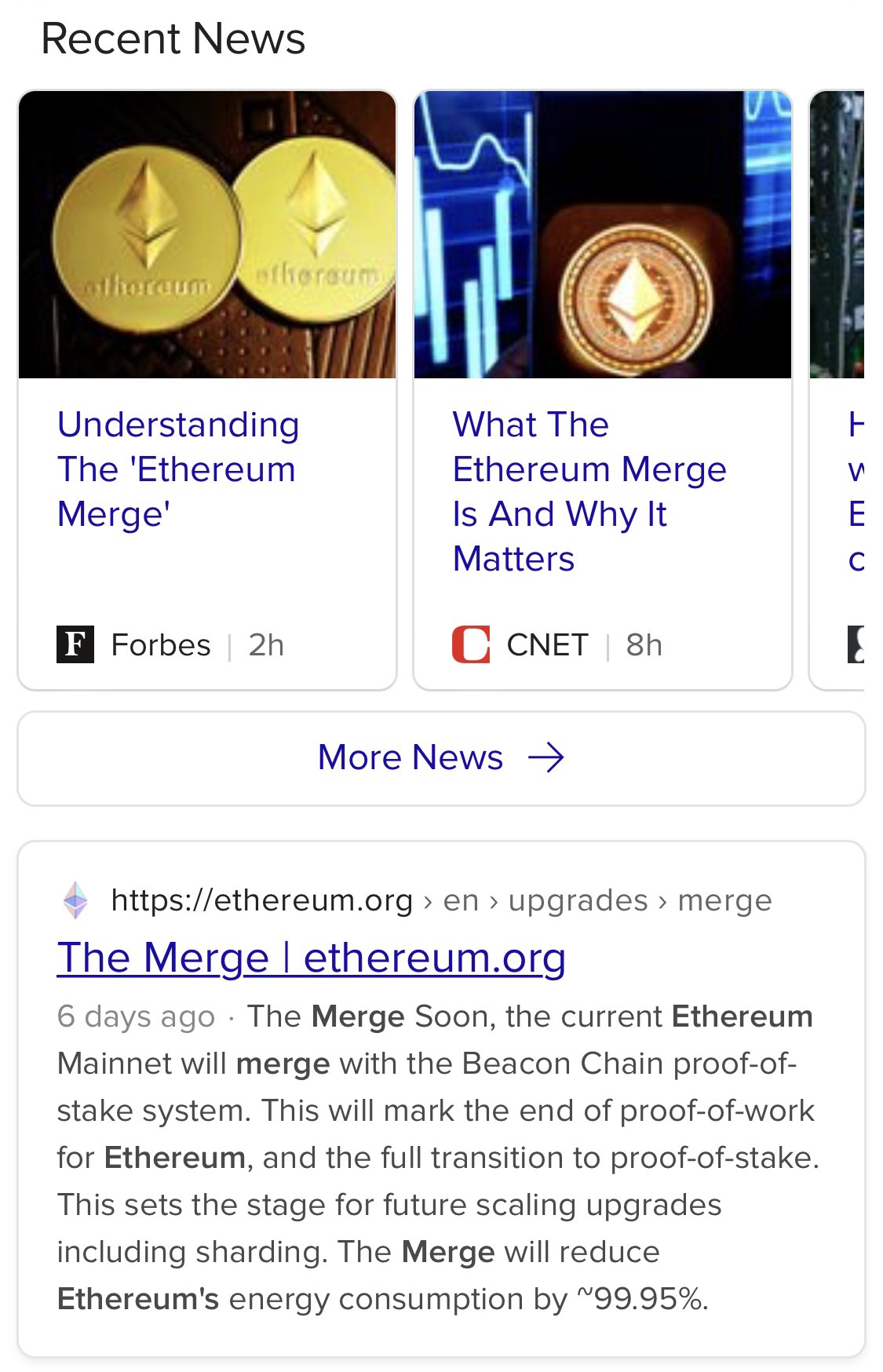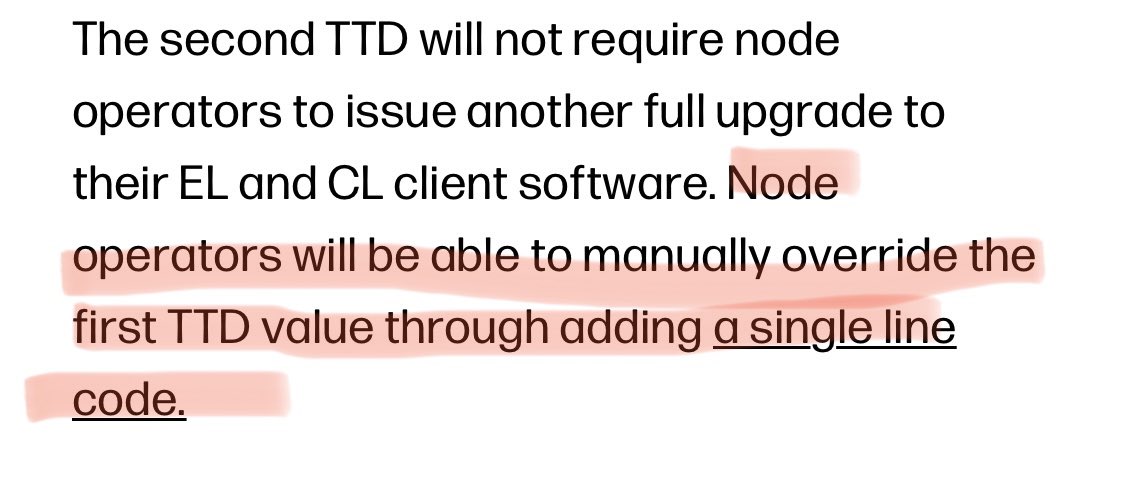Thread
So how does the MeRgE actually get triggered? I was curious so I did some digging. I thought it may be set with a fixed mechanism or readiness threshold, but no. Someone, probably Vitalik, will just say “go” and then it happens. The complex charade is to mask the centralization.
This differs so much from how any update in #Bitcoin happens, with signalling, lock-in, and ample time to prepare. All of this is because the consensus of nodes in the network is critical.
Ethereum is Centralized AF™ with few nodes that matter, so those in charge can simply “feed the actual value” for activation time whenever they feel like it. What’s hilarious is they then make tracker sites to “predict” when it will happen. 😂
Any search on the topic of the Merge comes back with lots articles about how important it is but none focus on HOW this change happens in a supposedly decentralized network. Even the eth.org site omits it. I found the info on Galaxy’s site. www.galaxy.com/research/insights/overview-ethereums-merge-upgrade-associated-risks/
Pay attention to the last part, where it says node operators replace the original TDD value by adding a line of code. That means those few node operators can delay the merge or cancel it too. It’s all such a meaningless LARP.
This is why we call Ethereum a #shitcoin. 💩
This is why we call Ethereum a #shitcoin. 💩
Mentions
See All
Peter Todd @PeterTodd
·
Sep 7, 2022
Good thread. Ethereum is decentralization theater. You can't realistically have a decentralized network when ridiculous nonsense like last minute hardforks are happening. My OpenTimestamps calendars run the same Bitcoin Core version for ages in production with zero issues.



